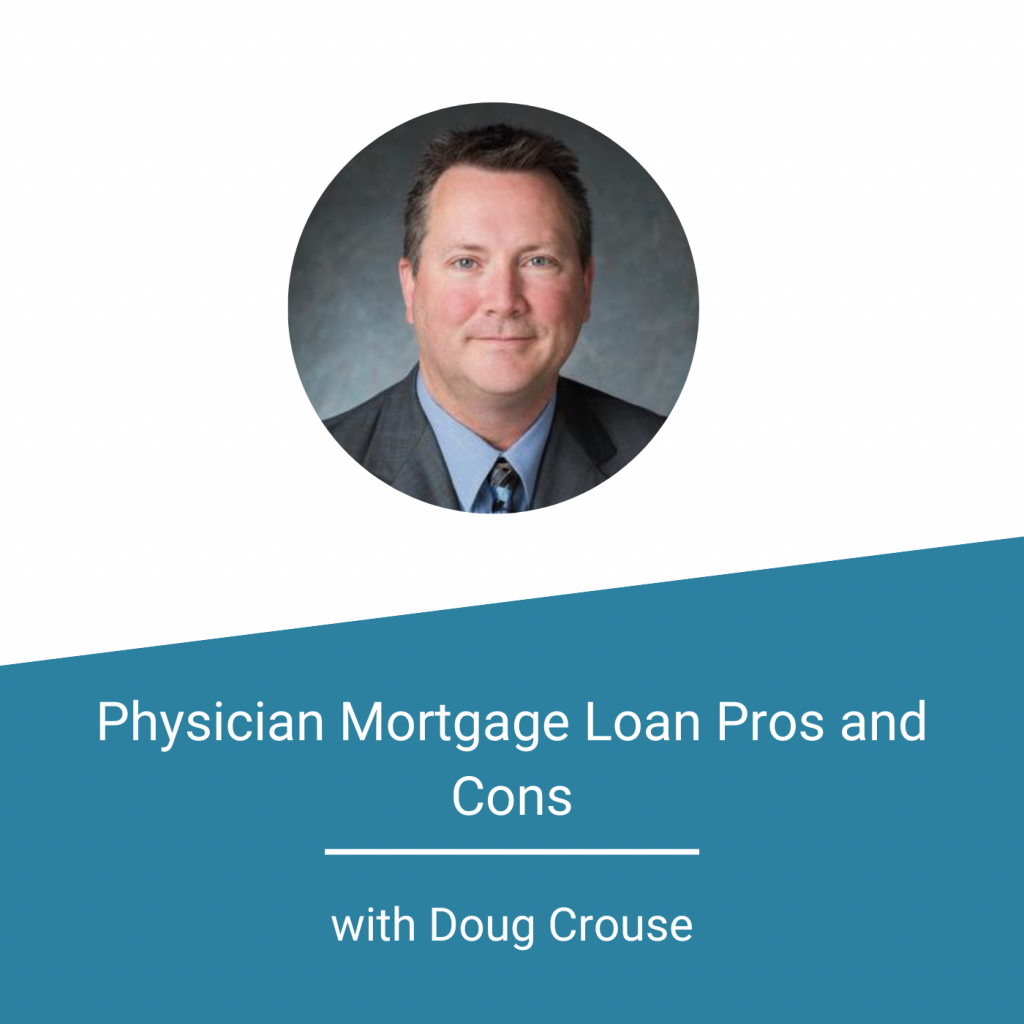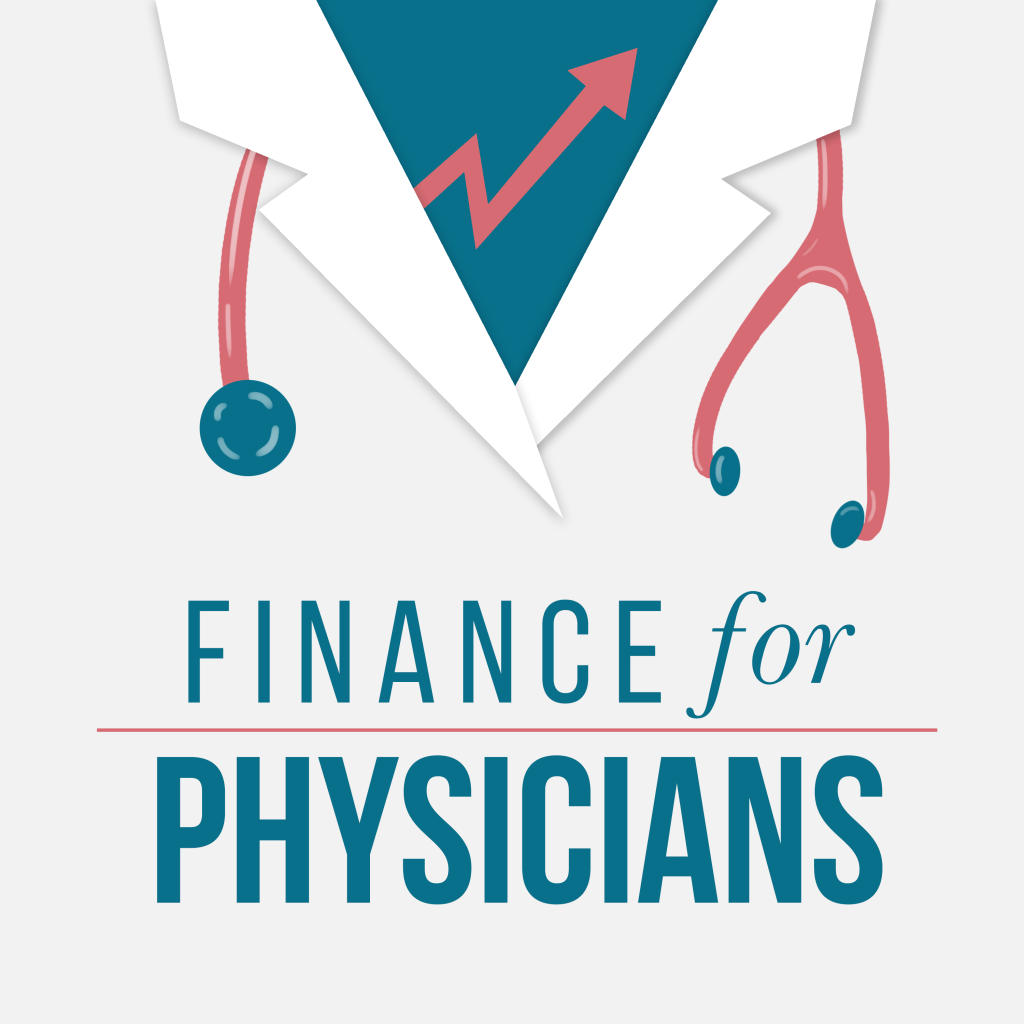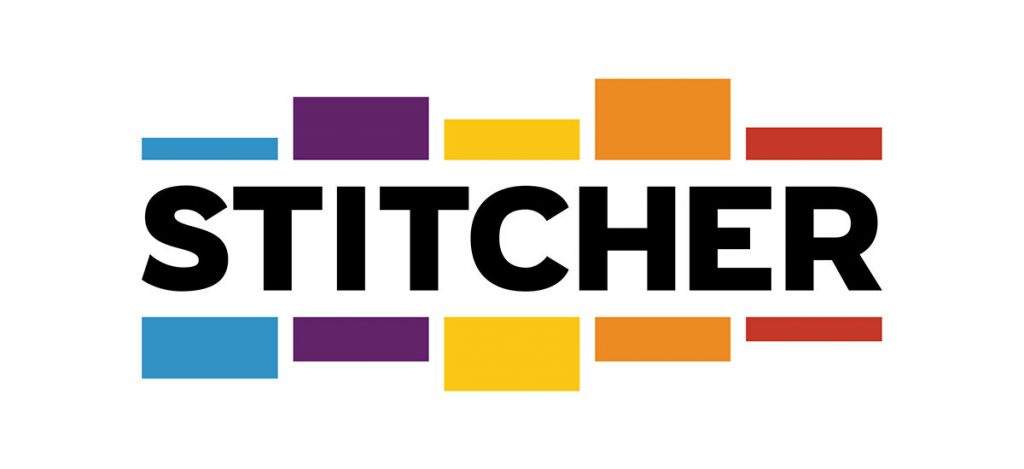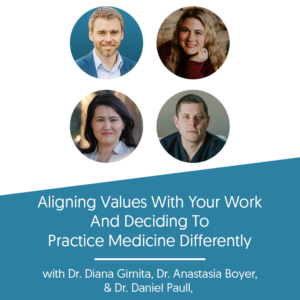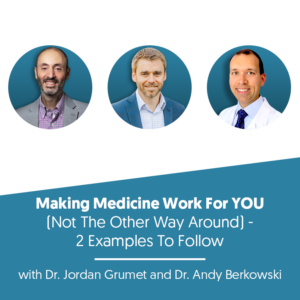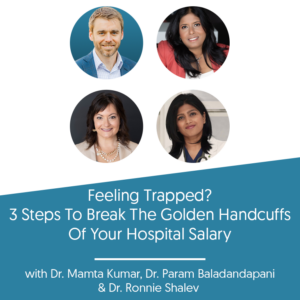What are pros and cons of physician mortgage loans? What do you need to know before taking one out, especially during a crazy market and changing rates causing sticker shock?
In this episode of the Finance for Physicians Podcast, Daniel Wrenne talks to Doug Crouse, mortgage lender that specializes in physician loans and author of Hippocratic House: Do No Harm When Purchasing Your First Physician Home.
Topics Discussed:
- Advantages: Low down payments, lack of PMI, and new job qualifications
- House Poor HENRY? Don’t go into major debt to keep up with the Joneses
- Hippocratic House: What to ask/expect as a first-time physician home buyer
- Disadvantages: Some lenders price their physician loans higher due to upsides
- Due Diligence: What to consider with lenders—service, rate, and closing costs
- Doug’s Predictions: Rates will continue to climb but not at same pace
- ARM: Makes sense if you don’t stay in the house and you make enough money
Links:
Historical 30-Year Mortgage Rates
Doug Crouse – Physician Loans at BMO Harris Bank
Hippocratic House: Do No Harm When Purchasing Your First Physician Home by Doug Crouse (Amazon)
Hippocratic House: Do No Harm When Purchasing Your First Physician Home (Free Copy)
Contact Finance for Physicians
Full Episode Transcript:
Daniel: What’s up, everyone? Welcome to the Finance for Physicians podcast. I’m your host, Daniel Wrenne. Join me as we dig into what it looks like for physicians to begin using their finances as a tool to live better lives. You can learn more about our resources at financeforphysicians.co. Let’s jump into today’s episode.
Hey, guys. I hope you are having a great day. I am excited to have a special guest joining me today, and that is Doug Crouse. He is a mortgage lender who specializes particularly in physician loans. When it comes to physician loans, Doug pretty much knows all there is to know.
He actually even wrote a book about it called the Hippocratic House: Do No Harm When Purchasing Your First Physician Home. He offers that as a gift. I think you can buy it on Amazon, but he will offer it as a gift if you contact them.
Anyway, Doug knows physician loans backwards and forwards. We’re going to be talking about some of the pros and cons of the physician loan and some of the things you need to know before you go about taking one out.
We’ll also talk about some of the crazy market stuff going on with mortgages lately. If you haven’t been paying attention, the rates are through the roof. We’re going to talk a little bit about what’s going on there and how that might change over time. Without further ado, let’s jump into today’s episode. Doug, what’s up, man?
Doug: Hey, Daniel. Thanks for having me on.
Daniel: How you been doing?
Doug: Doing good.
Daniel: Are you surviving all this mortgage craziness?
Doug: It has been a little chaotic with the Fed move. It’s a little shocking when I talk to some people and they see rates are two points higher than they were three months ago. That’s kind of a sticker shock to some.
Daniel: I guess it’s been two months, three months time has been up about 2% on average?
Doug: Yeah. I think, probably end of January, 1st of February, I had 30 year fixed rates hovering around threes, low threes even, and our upwards of five for 100% no money. We’re a little different than most in that our jumbo rates are quite a bit better than our conforming rates. If it was below the 6.7 limit, mine’s actually mid- to high-5s, where if it’s a jumbo 5% down, then I might still be in high 4s, but big jump.
Daniel: That’s a really unique setup. I guess I want to get into that because that’s (I think) an important point we’ll circle back to. Today, I was thinking maybe we should talk about the pros and cons of physician loans. A lot of you guys listening, or physicians are thinking about the physician loan quite naturally, but there are multiple options out there. A lot of cases, the physician loan is going to make the most sense, but there are plenty of cases where it doesn’t make a lot of sense.
Doug already kind of started to sprinkle in one of those scenarios, which like I said, we’ll circle back to. Maybe before we get into that, let’s start with the advantages of the physician loan just to kind of get that out there.
Doug: There are three main reasons why people take physician loans. One, low down payments. Normally, you couldn’t borrow a 7-figure loan without putting 20% down. In my case, every lender is going to have different rules for their program. But mine, we go to a million dollars with no money down, a million and five with 5%, and $2 million with 10% down. That’s going to be 20% down on a typical jumbo loan. There’s your first advantage.
The second is lack of PMI. It means our default rate on doctor loans is zero, so we don’t really need PMI to insure us against loss. That’s a big savings compared to a jumbo loan that was going to have PMI.
The other almost main reason that people utilize a doctor loan is when they’re moving across the country and taken a new job, this one actually lets you start with just an employment letter with a signed contract showing your salary. This is something that varies. Everybody’s got their own set of rules again, but mine’s up to 90 days before your job starts. If you’ve got a signed offer letter, then that’s what you qualify on as your future income. That’s really your three main benefits of a doctor loan.
Daniel: No money down or less money down than the typical loan, you get to avoid PMI. PMI (Private Mortgage Insurance) is the annoying cost that you pay normally when you don’t have 20% down.
Doug: That’s quite expensive, and that one’s credit-driven, too.
Daniel: And it sucks because it’s just a pure expense. It’s just straight up.
Doug: It’s using insurance to protect the bank. You’re getting nothing out of it except a loan. The bank’s the one that’s getting the benefit out of it that somebody else is sharing in their risk that if you default, they’re going to take on part of the loss. That’s what it’s for.
Daniel: Yup, and then the simple underwriting or simple process, less rigorous requirements, to qualify would be the third big one, right?
Doug: No. The other one would be being able to close before the job starts. A regular jumbo loan, you’d have to have a job in hand and pay stubs, where this one you can close just on that future job.
Daniel: Most banks, like the average bank that doesn’t do a physician loan, if you’re in training or going into practice, you’re like, hey, I got this contract, they’re going to be like, you’re crazy. Like, show me a pay stub or maybe two, right?
Doug: And something else I see a lot is people are like, well, I’m already attending, I’m already making $300,000–$400,000 a year. It doesn’t matter if you’re leaving Ohio and moving to California and buying a house in California. You can’t use your Ohio income to buy a California house because it’s obvious if your primary residence is California, you’re leaving that job at some point.
Even with the income and you say I’ve got a future job starting in California in two months, I’m going to state this job until then, so there’s no gap in income, you can’t get that with a regular jumbo loan, because the other job hasn’t started. The one you’re talking about saying, I’ll make my payments with this income, it’s going away.
Daniel: In some cases, I guess that third reason in itself could kind of make it a good deal in itself. Sometimes, you got to do what you got to do and make it work. You’re moving across the country, there are a lot of moving parts of that as it is. I know those time crunches can get pretty tight there. Doug’s got a nice set up because he can work in 49 states, right?
Doug: Everywhere but New York. We’re actually adding them here in another month or so.
Daniel: That’s really nice because you can kind of maintain a relationship. I know a lot of you guys are moving quite a bit, especially if you’re in training. Even beyond that, there’s typically some moving going on. That typical mortgage can cause some problems in that setup. Now the no-down scenario is (I think) an appealing one as well for an earlier career or maybe to have another house, potentially?
Doug: Yeah. Somebody could have a house that has their down payment on it, that they need to move, get their kids settled or whatever, and then sell them after the fact. That way, you’re doing no money down. You don’t have to have that equity. You do have to qualify both payments, but you don’t have to strip the equity out of that one by pulling out a HELOC or something to bring the money to the table on the new one. Or maybe once you sell it, the better use of your money is you want to spend it to pay off your student loans or something else anyway.
Daniel: I think that’s probably the most common reason we’re seeing with our one-on-one planning with people. The most common reason we’re seeing people go for that 0% down is they just need to catch up on investing. They want to make sure they’re maxing out all these tax shelters and they got student loans they want to pay off potentially.
There are a lot of things that they want or maybe should do from a financial standpoint to catch up on those things. Being able to put zero down is appealing because they can put the money to work elsewhere. But I think that can also get into one of the downsides of it. You have to be careful with that, putting 0% down.
Doug: Yeah. If the market pulls back here, you could be underwater, and then you’re stuck. You don’t want to be in the same people from 2010–2012, where they owed 100% and then houses went down 20%, 30%, 40%. Then you’re really underwater and you don’t have the option of selling unless you’re just sitting on cash on the sidelines. You could write a check to get rid of it.
Daniel: I guess that makes us old guys knowing that we both are around in the last real estate downturn. Maybe not that old.
Doug: Well, I am.
Daniel: We’ll say season veterans.
Doug: I started in the business in 1999, so I’ve been around.
Daniel: So real estate can go down, by the way, and can go down a lot, but it’s been a really good run. I’m going to try not to make predictions, Doug. You can make predictions if you want, but I have no idea what it’s going to do in the future. I don’t think it’s going to crash like it did.
Doug: I think we’re in a different environment than then. I’m going to blame Wall Street. Not the mortgage guys; we were just the middleman. There were just some garbage loans out there that were packaged. If anybody’s ever watched The Big Short Movie, it’s a very telling, a very accurate portrayal of what happened.
Daniel: That’s a great movie.
Doug: Somebody that worked at McDonald’s making $10 an hour and said, hey, you can go buy 10 investment properties.
Daniel: I bought my first house in 2006 or 2007 and they’re like, we don’t need anything. I mean, I don’t even remember if I showed. I might have. It was very, very little financial requirements. In fact, I probably should not have bought the house.
Fortunately, my life improved financially. I was okay. The lender, and it was actually Countrywide, loaned me the money, but it was a very easy process. I was surprised.
Doug: Yup, stated income, stated asset is like, hey, I make this much money.
Daniel: Stated income, that’s where I make all of it.
Doug: Yup. I make this much money, it’s like, okay. Then I don’t have any down payment, like, no problem. We don’t really need to see a pay stub and you don’t have any down payment. You don’t have any reserves, no problem. Here, how many houses do you want to buy? That was the market then.
Daniel: It was a different market.
Doug: Things are QM now (qualified mortgages) where banks are actually responsible to make loans that they can see that the borrower has the means to repay, which is a good thing. I hope we don’t end up with short-term memory and bounce back to Wall Street getting greedy and saying, well, let’s start selling this crap again. We’ll make a bunch of money on it and then the market implodes, because that’s exactly what happened.
As soon as the first person couldn’t pay, then it just rolls uphill to the point of, if they can’t pay, then there’s nobody to sell their house to to buy the next more expensive one. Then got to the point where there are people like, yeah, I can afford to pay my mortgage. But heck, if nobody else is going to pay theirs, why would I want to pay off my million dollar house that’s only worth $700,000 now? And then they strategically walked away. I don’t see that happening again.
Aside from the doctors and veterans, most people, if they’re buying a million dollar house, they’re putting $200,000 down. The veteran and the doctor are really the only ones. When I say doctor, I’m including dentists and a few other professions they lump in, the professionals that I joke about.
My wife’s a doctor, too. If she loses her job, she’s got five more offers at the end of the day. Only an unemployed doctor is one that chooses not to work. She’s going to have the means to continue to pay her mortgage. If something happens, she’s not going to be in the same boat of a recession and, hey, we don’t have a job for you.
There’s always going to be a job for doctors. That’s why banks are excited to get them as clients. That’s why we offer no money down, and no PMI, and, hey, we’ll even let you close three months before your job starts.
Everybody’s rules are different on that. These are portfolio loans where it might be a little quirk here and there that one bank goes to 750, the next bank says we only do 60 days. Some other bank says, hey, we include pharmacists in our program.
As a rule, the idea behind it is zero risk pharma because they have the ability to pay. They do pay. I’ve been doing doctor loans for several years and not one has defaulted. The banks love that kind of book of business.
Daniel: Did you? Were you doing them in 2008?
Doug: No, I didn’t start probably until 2013–2014.
Daniel: I worked with physicians then. We had a handful of people that were stuck with two houses. They were underwater on houses or they got kind of stuck in an area. Unwillingly-ish like a long story, those sorts of situations. But they definitely were not in danger of foreclosure, which is the nice thing about a physician. You have a higher income and you’re in demand. You typically can make the payments. It might negatively affect your planning if the market were to turn.
Doug: Even physicians, though, part of my book is from my wife’s perspective. I’m sure you probably fully agree with this. Not to buy the McMansion and put yourself in a position where you have a great income, but then you’re still married to your job because you took out a 45 debt ratio. I don’t think that’s a good idea for anybody, but I especially don’t think so whenever you’re making really good money to go to that same level of Keeping Up with the Joneses.
If you’re making 300,000 a year, you should not be at a 45 debt ratio. It’s just not something I like to see. I hate for people to feel like they can’t take a vacation, or afford a new car if they need it, or whatever the case is.
Daniel: Can you clarify the 45 debt ratio? Specifically, what’s that mean?
Doug: If somebody had an income of let’s just say, for argument’s sake, $120,000 to keep the math simple, then they make $10,000 a month, then you can spend $4500 a month towards all of your credit reportable debts, which are going to be your house payment, your car payment. If you have a child for alimony, anything like that, but not your car insurance, your groceries, paying your taxes, all of that’s coming out of the 55%.
The bank’s looking at what’s going to show up on your credit report, subtract all that, and whatever’s left can go to your mortgage. What I’m saying is, great. If you’re making $600,000 a year, then don’t go buy a $2½ million house just because one of my competitors says you can afford it. If you make $600,000, you can pay off a house in 10 or 15 years if you buy something for a million or a million-and-a-half, where you spend $2½–$3 million, you’re going to be just like everybody else. Drug out 30 years and scraping by to make the minimum payments.
Daniel: Yeah, 45% equals house poor.
Doug: Exactly.
Daniel: Because that’s partially how the lenders set the limit, because house poor means you’re still in the house. You can afford the house, but just barely afford the wealth.
Doug: Right, 45% is you can just barely pay your bills. You have to remember, if you’re in a high income, as you know, you could be in a W-2 situation paying out nearly 50% of your paycheck, your probably take home is 50%-55% if you’re lucky. That doesn’t leave much if you’re taking 45% of it to pay everything that shows up in your credit report, because you still got to eat, pay car insurance, take a vacation, and whatever.
Daniel: What does that get you? I guess at $100,000 income, let’s assume you have no other debt. I mean, that’s like a million dollar house, right?
Doug: $4500, you can probably buy $800,000. That’s kind of a loaded question, because in Colorado, it’d probably buy $900,000. In Texas, it’d probably buy $600,000 or maybe even $500,000. The reason being, Colorado, an $800,000 house, the property taxes might only be $2500 a year.
Daniel: I get it, the total payment.
Doug: Yeah, five times that.
Daniel: Because they have crazy property tax.
Doug: Yeah. I mean you don’t have to pay any state income tax. You have to get it somewhere.
Daniel: Illinois is the double digit.
Doug: You mean in most places.
Daniel: Yeah, it’s high income tax and high property taxes.
Doug: Texas is right up there with the highest property taxes. A million dollar house in Dallas is probably $25,000 a year in property taxes. A million dollar house in Denver is probably $5000, $6000 max.
Daniel: You mentioned the book. Some of you listening might not be familiar with Doug’s book. Doug actually wrote the book on this stuff, which is even better. Hippocratic House, right?
Doug: Yup. My wife, again, she’s a physician. We have a podcast on financial residency, but that’s where this is branded through. hippocratichouse.com or dougcrouse.com. We just give it away. It’s definitely not a Grisham novel. It’s a couple of 100 pages.
Especially a first time buyer, a physician buyer, everything in it kind of applies to you. There’s a chapter in it about credit. There’s a chapter about realtors, definitely something about the settlement, what to expect. Again, it’s not a riveting read, but it’s a very good read for somebody that wants to learn.
The problem is that you could call me and I could talk to you for hours on end. But if you don’t know the questions to ask or if I’m not available at 2:00 AM when you have time to read this book, then there are just things out of this that if you read it ahead of time before you call somebody like me or one of my competitors. It gives you kind of a, hey, I should ask them this.
Daniel: Yeah. Doug’s unique in that. Of course, you are in this business as well. You do have financial incentive to work with people. But Doug is about as objective as you can get from the standpoint of someone that’s working in that industry. That’s going to be a more objective assessment of that process.
Doug: Yeah. I tell my wife all the time. She refers business to me.
Daniel: That’s always a good sign. When your wife refer you business, that’s a good sign.
Doug: But I always tell people, there are just niches that certain banks, like one bank might be, hey, our niches, we want loans under $500,000, and they’re going to price aggressively. The other banks are going to be like, we don’t really want that business, we want $2 million loans. That’s where they’re aggressive.
In my instance, I don’t have probably as good a rate as you’re going to find with somebody else if it’s a $500,000 loan. But if you’re over 650 with the jumbo limit in most parts of the country, we’re super aggressive. I just tell people that.
They just call me like, hey, here’s my rate. But do your due diligence. Make a few phone calls, because you might do better. I don’t want to close a loan just for the sake of winning the business. If you have an opportunity to save money, I’m actually going to tell you that.
Daniel: We covered some of the upsides of the physician loan. Let’s talk about some of the downsides of the physician mortgage relative to other alternatives.
Doug: Really, based on some lenders, they’re going to price their physician loans higher. Meaning they’re going to look at a Fannie- Freddie-type rate or their jumbo book of business and say, well, we’re not making them put money down. There’s no PMI, so they’re going to build it into the rate, and the rates are going to be more expensive. Not the case with my bank. My bank looks at it and says, hey, these guys don’t default, so we don’t need to rely.
Daniel: It’s a 0% default rate.
Doug: Yeah. They look at it and say, these are loans that we really want. They’re borrowing the right amount of money. It’s a good diversified product for us. We actually take our jumbo product, and then cut the rate nine-eighths of a point. Even if it’s 100% financing, we’re cheaper rate on the doctor loan.
That’s not true of all my competitors. Most of them are looking at the downside being the rates. Sometimes, some of them are charging extensive fees. Also not the case with mine. Our underwriting processing fee is $1150, ut if you’re a million dollar loan, we’re giving you $1800 credit. We’re actually paying you to take a loan from us.
It just depends. You have to do your due diligence. When you’re asking the three things that you’re looking at when you’re choosing a lender is service, obviously. You have to find somebody you like, thinks going to get the job done. Rate, and then the closing costs. The closing costs and/or rate with some of my competitors are higher, and that’s the downside.
Daniel: If you’re comparing a conventional with 20% down versus a physician loan, it’s on average, a touch, what would you say higher percentage-wise? Do you have a rough idea on average, like conventional 20% down versus typical physician loan with zero down?
Doug: Normally, I would say that a physician loan is going to be an eighth quarter higher, but like I said, in my case—
Daniel: 8% or quarter percent?
Doug: For the physician loan, but in my case, we’re looking at whatever. Hey, if you’re 20% down and here’s the rate, doctor loans that rate minus an eighth. That’s just the way we price our doctor loans.
Daniel: Do you take an eighth off the jumbo or both conventional and jumbo?
Doug: We take an eighth off of whatever you price out as a non doctor loan. It’s an eighth lower if you take a doctor loan. If somebody comes to me and says, hey, I want a $2 million house at 20% down, you think you want a jumbo loan, but really, it’s like, no, you’re a doctor. I’m going to give you that jumbo loan, but I’m going to call it a doctor loan because you’re getting an eighth off the rate. It’s just a cheaper product.
I think the only thing that probably is going to compete with a doctor loan would be a veteran that’s disabled. If you have that 10% disability and you waive the funding fee, then VA rates, oh, my god. Back in March of 2020, my 30-year VA rates at the time got down to like 2.1% for 30 fixed. This bank I’m at doesn’t even do VA loans. It takes special training for the underwriters and they don’t have it yet. That’s really the only one I find really competitive with a doctor loan, unless you’re at a bank that is upcharging their fees and/or rate because it’s a doctor loan.
That’s going to almost always be the case if it’s a broker. Brokers are a fantastic outlet for 80% of the population for a loan. But for a doctor loan, they just don’t have the access. Banks don’t really offer this through the broker channel. If they do, I know any of your listeners ran into this back around Mother’s Day. NorthPoint was doing them, and they pulled the plug, and it’s like, we don’t care if you’re closing tomorrow, we stopped doing doctor loans.
Huntington Bank is another bank that offers their products through the broker channel that goes directly to Huntington. You’re going to get half a point to a point better rate than you would through a broker. Brokers are fantastic for 90% of the people that are not in this space just because they just can’t compete because banks are like, this is our bread and butter. Why would we give this to a broker?
Daniel: That makes sense. Downside, in general, sometimes interest rates can be higher overall in the market. But with your products, it sounds like they’re a touch lower. It’s worthwhile to compare. Especially, if you’re not working with Doug, you want to compare alternatives. Especially if you can put 20% down, you can ask, how’s this compared to conventional?
We have had clients that the lender kind of pushes them to a physician loan, and they had 20% down. We’re like, no, no, ask about the conventional loan, because in that instance, it was quite a bit lower cost-wise. It’s good to look at your options.
I think one of the other downsides is not like a product downside, it’s more of psychological. I guess there’s a temptation with going 0% down to kind of maybe get a little overextended and have 0% equity there. If you have $0 elsewhere, that can be a problem. If you’re really pushing the envelope of this, you can kind of get into more trouble the further you go with all this stuff. What I’m trying to say is if you’re going to get into trouble, I’d rather you have 20% equity than zero.
Doug: It’s human nature. People have a tendency to not necessarily be tied up but just spend the money. If you’re not going to be somebody diligent, invest it, save it, and have access to it if you need it, then 100% finance loan, as you’re saying, and then you don’t have an emergency fund and/or if push came to shove, say I need to move across the country and I owe 100% here by the time I pay a realtor, you need to write a check to get rid of your house. If you’re in that boat, then you probably shouldn’t have taken the 100% loan.
I joke about the acronym, we call them HENRYs, which is higher earners not rich yet. Some new attendees, of course, fall into that. That’s partly what doctor loans exist for too, is, yes, you can make the payment. But no, I don’t really have any money just yet.
You’re going to get there. But I am definitely in the camp that if you’re taking 100% financing and you don’t have a lot of money, then start gaining some money quickly. Don’t buy a house to where you can’t then start setting aside a decent chunk of money to build up your emergency funds.
If you’re going to close on a house and you’re at a 45 debt ratio, you’re not really able to then say, now, I’m going to save another $2000, $3000, $4000 or $5000 a month for that instance, where I do want to move across country and I have to write a check, get rid of my house. It’s got its pros, but it’s also dangerous if you don’t use it right.
Daniel: Yup, that’s like anything. We’re always trying to talk people into tracking their net worth just as a kind of good financial discipline. It’s maybe not the coolest thing in the world to track your net worth, I don’t know. I’m a financial planner geek.
Anyway, the nice thing about it is when you start tracking it—I would always suggest it quarterly or even monthly—you can really see your progression in how you’re doing and how things are growing. Going back to what we were just saying, a lot of people get overextended on the house, which limits their ability to grow their net worth, or maybe just their home is the only asset that’s growing. That’s a problem sign.
Doug: Yeah, and hopefully the home does keep growing because like you said, the last 20 years, yes. Well, not the last 20 but since the implosion corrected and since 2012 (the last decade), we’ve seen nothing but appreciation. It doesn’t necessarily mean that’s going to be the case for the next 20.
Daniel: Yup, so if your net worth is not growing aside from the house. A lot of people have nice houses in medicine, real expensive houses, and they’ve been growing a lot. You get a million-and-a-half dollar house all of a sudden. But what I’m trying to say is if everything else has not been growing because you kind of got a little overextended with the house, I think it would be helpful to be aware of that.
That’s why it’s good to track your net worth because what happens in that scenario is if things go south, you have a lot less wiggle room in that scenario. You can’t really take as much of a downturn. And you’re not even able to save for things like retirement, education, traveling and those other things in life. There are other things in life and I’m sure many of you have other areas you want to focus on, but it is a personal decision.
Different people put a much higher value on having a nicer house. I’m not the guy that says move to the lowest cost of living area just so that you can save money and try to save as much as possible. I think there are reasons to move to high cost of living areas like around people and family, if that makes sense. I think that’s what really matters in people’s lives. That’s what it’s really about. It’s like being able to match this sort of thing with what you consider most important.
Doug: I just talked to a doctor the other day. He was saying several of his friends in Salt Lake bought houses for $350,000 five years ago, and they’re selling them for $900,000 right now. That’s where you’re going to invest in the market with that kind of return, but not this year.
Daniel: No, that’s crazy. That’s abnormal.
Doug: That is abnormal. Don’t expect to replicate that.
Daniel: Those kinds of numbers make me think that there’s some bubble going on there. Most areas are not quite. Salt Lake City has exploded growth-wise. It’s been a hot market. Anyway, do you see any short-term? I’m going to try to make you do a prediction here.
I just said we’re not going to make predictions, but I’m going to make Doug make a prediction. Maybe not a prediction, but what are your general thoughts on where things are going from here? With the lending world, do you see any trends? I’m curious about your observations.
Doug: Before we started, we were just joking about it. I think an expert weatherman is going to be right 60% of the time, so I’m going to preface my guts here.
Daniel: That’s why I want to know. Most people are 40%. Doug’s going to be 60%. This is great.
Doug: Flipping the coin 50/50, you’re going to be right half the time. I might be right 60% of the time. I think rates are going to probably continue to climb the rest of this year, but not at a pace that we’ve seen year-to-date because I think we’ve seen a huge move. If you see rates go up another three quarters of a point between now and the end of the year, I’m in the camp of it.
It’s just as likely that next summer rates will be lower than they are at the end of the year than they are higher. The reason I think that’ll happen is they’ve got to do something, because as we were talking, Salt Lake or Austin, some of the prices there went up 35%, even 40% in a year’s time, something’s got to give. They got to put the brakes on that.
That’s going to happen with the Fed stepping in. When they do it, I think they’re going to do things to a point where it’s not an exact science, so they’re probably going to overshoot. That’s where I think there’s just as good a chance that as rates are potentially higher at the end of this year, I could see it being 50/50 that next summer, they actually might have to come back and say, oh, we overdid it, and we just don’t want to crash the market, so here, we’re going to lower rates back down.
Time will tell. That’s my 60% guess. But housing prices, there are too many factors that rate is not the only that’s driving them that nobody can sustain. I don’t care if you’re a cardiothoracic surgeon making a million dollars a year. If prices keep going up 20% a year, the surgeons coming out five years from now aren’t even going to be able to afford a house. That’s got to stop.
I don’t personally think that we’re going to see anything close to what we did in 2012 or 2013. I think if you see a correction, it’s going to stop seeing 20% appreciation and if it’s flat, then that’s a win in my opinion.
Daniel: Yup, and it is very location dependent too. Historically, these downturns have been a big time location. I live in Lexington, Kentucky. Historically, Lexington, Kentucky at least has had much less volatility than the average market. That’s not to say it’s going to change, but Las Vegas, for instance, has had super volatile.
Doug: Right. Florida, Texas, California, for sure. Those markets that you see the big swings, when they go up, they do come down. The ones that go up the most—
Daniel: Like in Salt Lake City?
Doug: In fact, speaking of that, we do finance in 49 states, but there are seven states that we limit to 95%. That’s the states that they’re looking at and saying, hey, if something’s going to happen, it’s going to be one of these seven states.
Daniel: Can you tell us the seven states?
Doug: It’s Florida, California, Maryland, Idaho of all states.
Daniel: Idaho is hot.
Doug: Is it? That one surprised me.
Daniel: It’s super hot.
Doug: And then Nevada and DC. Those states are states that my bank is saying, hey, we’re just going to limit these to 95%. We don’t think the market is going to come crashing down either or we wouldn’t still be doing 100% loans. But we’re looking at and saying, if something’s going to happen, it’s probably going to be the states. I don’t even see that happening there. I think you’re going to stop seeing 20% and maybe see flat or 5%.
As you said, you’re in Lexington, I’m in Kansas City. It’s a Steady Eddie market. 0%, 3%, 4%, was the norm. Kansas City saw 20% last year, and it saw 18% the year before that. That’s just so unheard of for back-to-back years like that.
Daniel: Yeah. Historically, houses kind of gravitate to inflationary rates. I guess inflation is high lately.
Doug: Yeah, for sure.
Daniel: Real rates. That’s still too high, 20%. One other question I just thought of before we part ways, I’ve been hearing people mention the ARM more lately. I guess the reasoning behind it is that they’re thinking or the lenders are thinking that rates are going to go back down. They’re telling them, hey, let’s do this ARM product and get that for 5, 7 years, whatever 10-year ARM, and then that way, you have that period of time locked-in. But sometime from now until then, rates are bound to go down back to where they were or below, and then we’ll just refinance them. I’m curious if you’ve been seeing that or what your thoughts are on that.
Doug: I see a lot. From a bank expense standpoint, obviously, it mitigates the risk. If you’re giving somebody a 30-year note, you’re locked in if they actually stay 30 years, which nobody does. But if they did, the banks are on the hook, and then they have to answer to regulators that they keep enough on their balance sheet to account for that.
If they do an ARM, then after 7, 10 years, or 5, whatever length of the ARM you take, then we can just adjust our rate to the market so we’re not on the hook, so we don’t have to keep as much. Of course, an ARM rate, there’s no reason to take it if you’re not saving enough to mitigate the risk you’re taking.
I will say 23 years doing this that 90% of people do not keep a mortgage longer than 10 years. That may change as we move forward, because in the past 20 years, rates were falling. Part of what drove that fact that mortgages didn’t stay on the books 10 years was take whatever today because next year, you’re going to be refinancing to a lower rate anyway.
Daniel: Yup. Everybody was refinancing over, and over, and over, and over.
Doug: Those days, I think, are gone. I think we’re going to see an ascending rate pattern for a decade. You’re always going to have a pullback. If you close today at 5, then there might be an opportunity to refinance at 4½. If rates go to 6, they might pull back to 5½ for a while, but maybe.
Really, I like ARM for two reasons. One, either you know that you’re not going to stay in the house. Who cares what happens to the rate if you walk in for 10 years and this is especially a resident? Four years now, I’m moving across the country and not staying wherever I’m doing residency. This is not where I want to live.
Or two, you make enough money and you were conservative enough that, if my rate does jump 2%, 4%, 5%, on me, I could just write a check and get rid of my mortgage. Those two reasons are why I think an ARM makes sense. But otherwise, if you’re saying, I’m going to save $200 a month times the next 10 years, that’s $24,000.
You’ll actually save, in that scenario, another $7000 or $8000 that the cheaper rate will pay down equity faster. That’s all going to disappear on you in two years. If your 11-year rate jumps 3%, 4%, in year 12 it jumps another 1% or something, then that’s great. You save $30,000 and then starting year 13, you’re way in the hole.
The only other reason would be somebody that, hey, this is the only way I can afford the house right now, I’m on the resident salary in two years, and I’m going to be on an attending salary and my income is five times as much. $200 a month savings today means a lot more to me than a $400 increase might hurt me later. As a rule, I only like ARMs if you fit into the category of either you’re conservative and I can write a check, or I’m not going to be here so it doesn’t matter.
Daniel: I think the problem I have with the whole approach is it’s built on this assumption. For it to work, rates have to go back down. That’s like a known—
Doug: That’s not given like it used to be.
Daniel: As it’s been coming up, I don’t just send them this, I kind of give them some breakdown of it. I like to send them the historical 30-year fixed mortgage rates, like a chart of it. If you look at it, it’s like back in the 70s and it’s way high. It’s been a pretty consistently reducing percentage rate from the 80s until just not long ago going downward. Rates, like Doug was saying, for a long period of time have been consistently going down. It wasn’t huge. There was a little bit of up and down, but there weren’t huge, massive changes.
My point is, the reverse can happen. We could have the same exact thing happen in the reverse, where it’s slowly going up for 10–20 years. In that situation, that’s a train wreck if you get the five-year or seven-year ARM, and you end up with the house for a really long period of time. It’s not worth taking the risk. In most cases now, I agree with your exceptions there.
Doug: Something that comes up a lot is, my book definitely points this out as you should be asking if there’s a prepayment penalty, which they almost don’t exist anymore. Those types of loans were what we were talking about in 2012 and 2013, the Wall Street loans. You don’t have those types of penalties. But even without a prepayment penalty, the first thing I hear is, why wouldn’t I just take this ARM, save the money, and if rates go up, I’ll refinance? I’m like, stop and think about that.
If your ARM started at 4½ and let’s say that’s a half cheaper than 30 fixed, then you want to refinance because your ARM went to 6½, it’s like, what do you think 30 fixed is? Thirty fixed, if your ARM went to 6½. Thirty fixed is probably 7½ now.
Daniel: Everything goes up.
Doug: Yeah, so yes, you can refinance. No, there’s not a prepayment penalty. But your flawed logic of you could just refinance is true, but all you can do out to refinance is start the clock over and stretch it out to 30 years again. But you’re not going to go from, hey, my rate went 6½, I’ll just refinance to a new 4. Once you get to 6½, 4 is way in the rearview mirror.
Daniel: Awesome. Doug, it’s always fun talking about mortgages with you. I’ve enjoyed it and I appreciate you coming on chat.
Doug: Thanks for having me.
Daniel: As always, thank you so much for joining us today. If you found this valuable, please give us a review on iTunes and share with a friend. Also check out our website at financeforphysicians.co for all sorts of additional content. See you next time.



